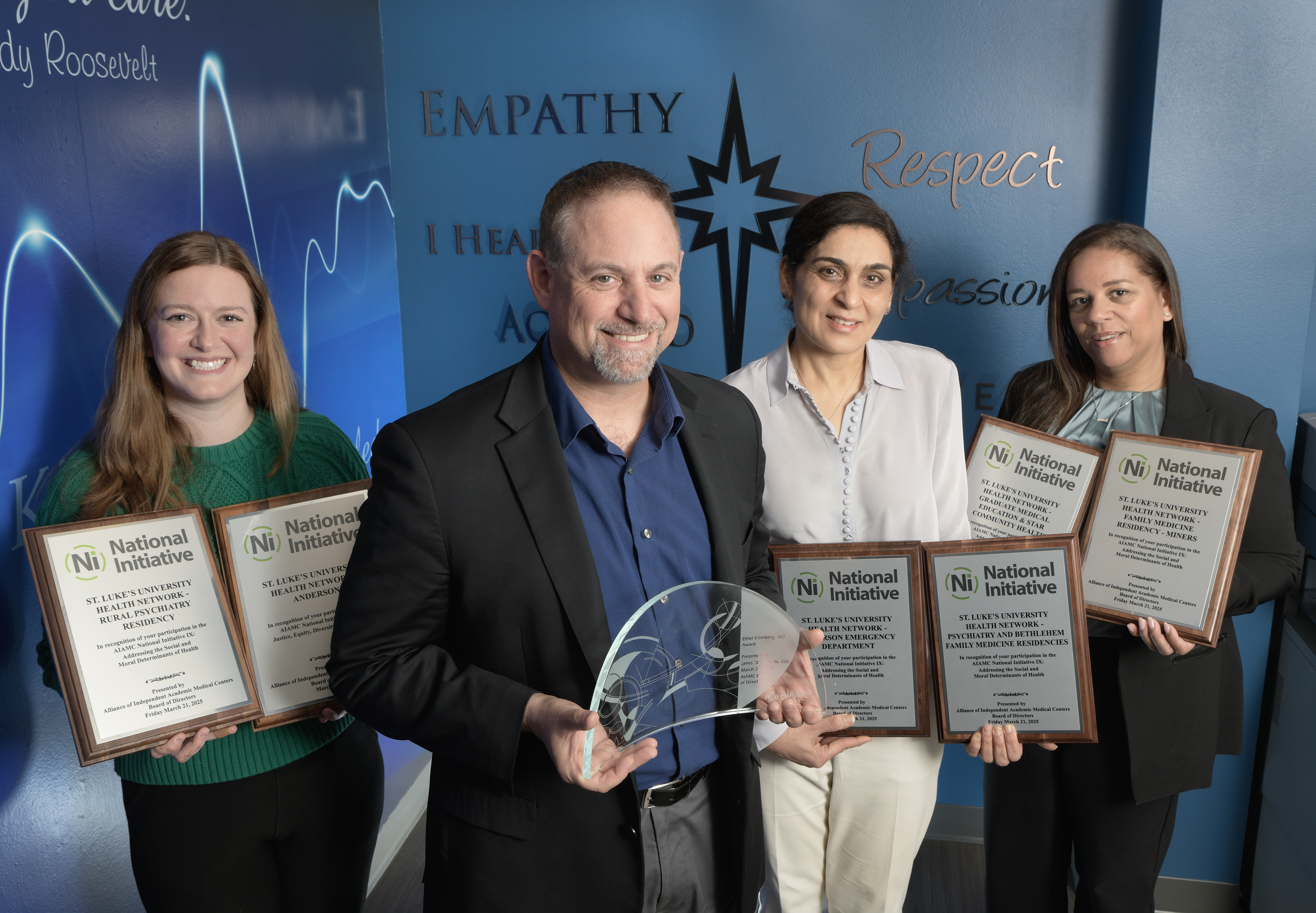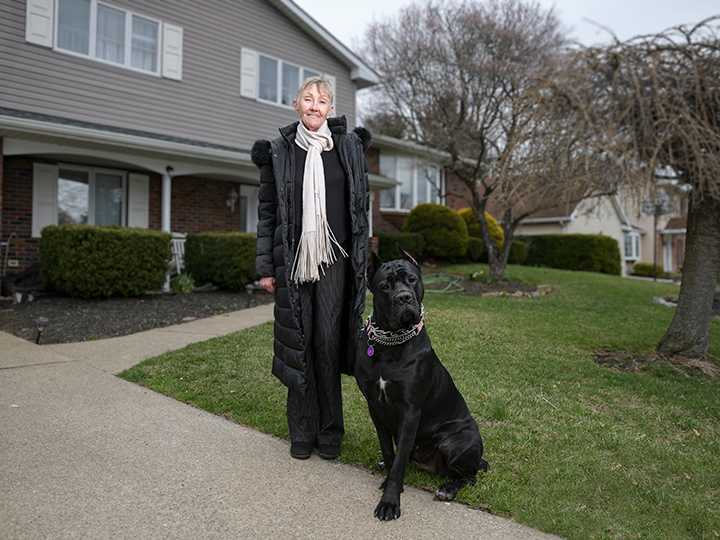Physical Therapist Completes 100th Triathlon
September 05, 2023

Physical therapist Joel Allen has worked with thousands of patients during his 28-year career to help them recover and improve from an assortment of conditions. Over the past twenty plus years, he’s also set some amazing goals for himself.
Joel, the Facility Director for Physical Therapy at St. Luke’s in Quakertown, completed the 100th triathlon of his career this July, overcoming an unexpected health crisis during the competition itself. It was the Ironman Triathlon in Lake Placid, NY – the legendary race at the distance of a 2.4-mile swim, a 112-mile bike ride and a full 26.2-mile marathon.
How It Started
In 2001, his wife, Kathy, encouraged Joel to join her on their first triathlon to raise funds for the Leukemia & Lymphoma Society through Team in Training.
Joel wasn’t interested at first but was encouraged by Team in Training coach Scott Ewing.
“He was probably the biggest influence on my life outside of my family,” Joel said. “He made it so much fun in the beginning. Unfortunately, Scott passed away nine years ago, which was devastating to me. He was one of the most giving people I’ve ever known. I have raced in memory of Scott countless times since that day.”
Joel’s triathlon career has seen him to all the various distances, from the Olympic/International distance (1.5-kilometer swim, 40-kilometer bike ride, 10-kilometer run) and Half Ironman (1.2-mile swim, 56-mile bike ride, 13.1-mile run) to the full Ironman.
His first triathlon
Joel’s first triathlon was an Olympic distance in St. Petersburg, Fla., in 2002.
He was struck by the support from the pros, who raced on Saturday, and then came back to line the course and support the thousands of amateurs who raced on Sunday. That type of inspiration proved invaluable for Joel in order for him to reach the century mark.
His favorite memories are racing internationally in Budapest, Hungary, in 2014 when he had a great swim, but got a flat during the bike ride and didn’t have the right adapter to refill his tire.
“I’m stuck on the side of the Danube River, watching all these racers going by with their heads down, and having a terrible experience because I was having the race of my life to this point. Then I looked up.”
There, Joel saw gorgeous, historic castles and palaces all around.
“That allowed me to have more fun with this lifestyle, of triathlon,” he said, “to see the culture around me and not race with blinders on all the time. I started taking myself a little less seriously, which made everything more enjoyable.”
He also fondly remembers his first international race in 2011 in Austria. Each racer’s country flag is printed on the race bib. This gave Joel a sense of national pride. At a race in Netherlands, he was side-by-side with a prince of Bahrain who was “very personable.”
Competing in his 100th triathlon in the face of adversity
“I told all my friends, family and co-workers at St. Luke’s that this race was going to be a celebration,” he recalled. “I wanted to thank all the volunteers and take in the whole atmosphere and wasn’t going to focus on my overall time.”
Shortly before the race, however, he started experiencing intestinal bleeding. Despite this, he was feeling fine at the start of the swim, which he completed faster than he expected. He was tearing up the bike ride too, but at around 35 miles into that, things started going very wrong.
“I never stop in triathlons, but from mile 35 to 112 on the bike, I stopped 17 times to get more nutrition and to use the restroom,” he said.
At the transition to the run, he saw his wife and called out that he didn’t think he could finish, but she encouraged him to try walking. For 26.2 miles, Joel would alternate walking with some jogging, averaging a brisk 13-minutes a mile while walking. Friends and supports later told them they were talking to him on the course, but he doesn’t recall most of it.
When he approached the area near the Olympic Oval where Eric Heiden won five speedskating gold medals at the 1980 Olympics, setting records in each event, Joel began jogging for the last 100-or-so meters.
“They immediately put me in a wheelchair and treated me with IVs in the medical tent,” he said.
“I think my body knew how to get me to the finish line,” he said. “I’ve never been tested like that before and now I know I can endure the hardship and push through. Fortunately, my mind must have been coherent enough to not allow me to cross the line of entering into serious medical jeopardy. I have a whole new respect for people who spend 16-17 hours on an Ironman course, the physical toll they face and the mental part of not allowing themselves to quit.”
The Bigger Picture
“As a physical therapist, for me at this point, it’s not about racing for myself,” he said. “I love seeing older people, and those facing physical challenges including obesity and amputation, finish these physically and mentally demanding races and achieve what others thought they couldn’t do. Even after you finish, watching competitors finish over the last two hours of an Ironman race are some of the best moments I’ve seen in all of sports.”
“I couldn’t have done this without the support of my friends and family, including my work family at St. Luke’s.”
Joel Allen, PT, MSPT, received his Master of Physical Therapy degree in Physical Therapy from Ithaca College. He is certified in manual treatment of the spine, sports physical therapy and vestibular rehabilitation. He believes in a hands-on approach to treatment and individualizing each person's therapy to their abilities and goals.
Latest News


April 10, 2025
National Recognition for SLUHN Graduate Medical Education

April 10, 2025
Bethlehem Woman Grateful for Expert Orthopedic Care

April 09, 2025